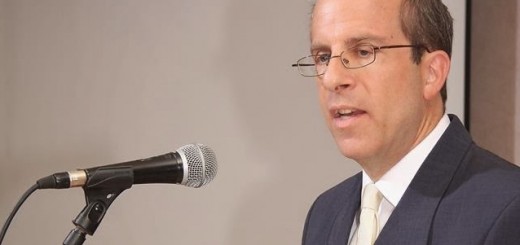A Better Way to Allow Change in the Charedi World

When Yair Lapid introduced his measures to nudge the charedi community into the IDF and the work force a few years ago, Cross-Currents readers mixed it up with more gusto than Bernie Sanders supporters at a Debbie Wasserman Schultz testimonial. Some resented any attempt to influence the charedi status quo from outside; others saw the intervention as better than some of the alternatives.
Most agreed, however, that coercive measures – especially those that introduced criminal sanctions for non-compliance – would be counterproductive. The community would fight back vigorously anything it saw as forced acculturation. The positive changes in attitudes towards employment and army service would be erased. Better to let economics do the coercion.
That position is supported by a new article in Commentary by Evelyn Gordon. Here you will find the latest analysis and stats on issues of growing charedi employment (men and women), receptivity to core curriculum even in high school, and the throttling of the stereotype that those who serve in Tzahal lose their Yiddishkeit.
While a confluence of decisions unpopular with secular and heterodox Jews in America have turned charedim in Israel into popular whipping boys in the last days, Gordon finds that the situation is not as dire as some would have it: “[T]he headlines of recent months are misleading: Developments in Haredi society as a whole actually provide strong grounds for optimism.”



A schism in Ultra Orthodoxy?
This may be the beginning of a watershed moment in Israeli Ultra Orthodox history. I pray that the outcome is positive.
There’s no doubt that change comes faster when it is viewed as organic (hence imho the chareidi rejection in many circles of tcheilet, prenups and r’ steinsaltz gemara vs. artscroll , beis Yaakov etc.) The challenge to those outside the system is what policies can optimize the reduced cost to society while engendering successful change. I’d include in this the human cost of those in mid life who get told that the system has changed and they will have to fend for themselves without much in the way of tools to do so. See US downsizing experiences for more detail.
She-nir’eh et nehamat Yerushalayim u-binyanah bi-mherah ve-yamenu,
Better, perhaps, different for sure. But what is really different is NOT primarily voluntary versus forced, but bottom-up versus top-down. The overwhelming demand by chareidim for even HS level secular education exceeds the supply by almost two degrees of magnitude. Solving that problem is where to focus and that may well require strong government policy and yes, even coercion.
Spoken like a true Utopian socialist who views a statist coercive modus operandi as desirable- communism warmed over.
As revolutionary, or maybe I should say, reactionary as chanoch l’naar al pi darko.
I previously mentioned that our rav has impeccable Yeshivish/Charedi credentials-his view was that prior to Lapid’s public pronouncements, that the Charedi world was already evolving at its own speed on issues such as IDF service and entry into the work force, but that Lapid’s very hostile public pronouncements led to an extreme reaction from the Charedi world as well.
The idea that a poll found that a large majority of parents WANT to send their sons to a yeshiva high school that offers the core curriculum is misleading. Or maybe the word “want” has two meanings even in the same sentence (I want to eat ice cream, but at the same time, I want to stick to my diet/I want to sleep in, but I want to get up for minyan).
There are thousands of Charedi boys finishing 8th grade this year – if their parents wanted them to go to high schools that are black hat places with basic English/math/bagrut, those places would be drowning in applications, and some of them would open additional classes. That is not happening at all, you can contact schools and ask – those schools are not even full. And all the best yeshiva ketanas with no secular studies are turning away applicants!
What I think the parents meant by “we want” actually was, “IF the gedolim would say it is OK, then we’d be happy to do it, but since they don’t, and the “best” families won’t send to their boys to those places or let their girls marry the graduates of those places, we won’t.”